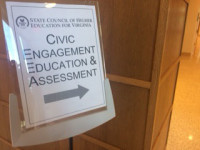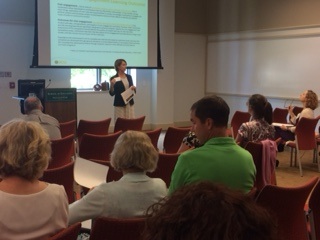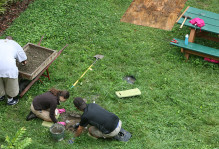Assessing Learning Outcomes in Civic Engagement
Remarks prepared for the opening session of the SCHEV Civic Engagement Education and Assessment Summit at William & Mary on June 9, 2017:
 Over the past few decades hundreds of best colleges and universities in the United States have established centers for some form of community or civic engagement. The centers exists in physical and web space serving as a connecting point for students and faculty who might be most inclined to become civically engaged and use engagement as pedagogy. In most cases the center uses the language of the institution’s founding purpose to call upon funders, internal and external, to answer the call to action. The center brings with it the appeal of something true to core mission while not altering the existing structure of the university. It does not require the institution to change its operating system. This model is proliferated across colleges and universities and in most cases lauded for its outreach. Yet, the handout mentality, too often, earns front-page coverage on web and print media.
Over the past few decades hundreds of best colleges and universities in the United States have established centers for some form of community or civic engagement. The centers exists in physical and web space serving as a connecting point for students and faculty who might be most inclined to become civically engaged and use engagement as pedagogy. In most cases the center uses the language of the institution’s founding purpose to call upon funders, internal and external, to answer the call to action. The center brings with it the appeal of something true to core mission while not altering the existing structure of the university. It does not require the institution to change its operating system. This model is proliferated across colleges and universities and in most cases lauded for its outreach. Yet, the handout mentality, too often, earns front-page coverage on web and print media.
Quantifiable are meals served, children tutored and houses built. It’s the easy way for colleges to “do civic engagement.” Volunteerism resonates with service-oriented donors, prospective students and families. I am not saying this is a bad thing. It is not, however, intentionally teaching civic values and skills. It doesn’t hold up well when deciding on how best to fulfill our educational mission. The benefits are not often immediate and assessing student learning and community impact is more challenging than counting hours. And yet, we must do just that if we are to remain dedicated or become more dedicated to our learning centered mission.
We know that colleges and universities can boast great accomplishment if given the freedom to linger in the har d work of community development, where engagement means, over the long term graduating students who, by their example, help to fix the system that created our national conundrum. We cling to our freedom to teach for this very democratic value while keeping an eye to the horizon for external pressure to effect positive change in short time, great supply and least financial cost possible. That’s not who we are when we are at our best. So, we need data to share the story of learning outcomes, community partnership, co-education, transformation – academically, interpersonally, in community in on-campus.
d work of community development, where engagement means, over the long term graduating students who, by their example, help to fix the system that created our national conundrum. We cling to our freedom to teach for this very democratic value while keeping an eye to the horizon for external pressure to effect positive change in short time, great supply and least financial cost possible. That’s not who we are when we are at our best. So, we need data to share the story of learning outcomes, community partnership, co-education, transformation – academically, interpersonally, in community in on-campus.
Imagine if all public Virginia colleges remained wholly dedicated to our civic missions. We all share in a common cause – to educate students the best we can – with the most effective practices and strategies. And, each of us in the room, would, without hesitation, attest to our shared desire to improve learning– to know better about what our students actually learn, how they learn best and to deepen our resolve to enhance student learning. Through assessment of civic engagement we are better equipped to:
- Report institutional data about how much students are improving in their learning.
- Capture students’ demonstration of learning across a far range by examining learning outcomes across a broader range of developmental progress.
- Develop and enhance our programs and classes based on clear, well-articulated (learning) outcomes.
- Harness storytelling power to clearly justify the value of what students learn in the manner we teach it – to tell the story of educational value.
- To become more authentic in our stated desire to partner, co-educate, be with, learn from community at large and citizens in particular.
- And, in doing so we further garner the resources needed to be most effective by providing assessment data of student learning.
We all know that engaged learning is program, pedagogy and oftentimes philosophy that best guides our most multidisciplinary collaboration and high impact programming. May this day help us prepare to become more effective educators in our shared pursuit of student learning and community impact.




No comments.
Comments are currently closed. Comments are closed on all posts older than one year, and for those in our archive.